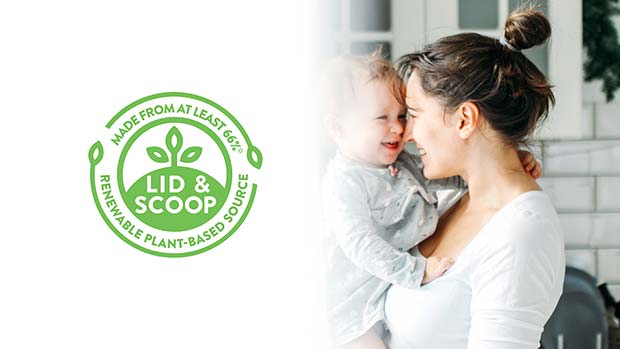Sustainability is one of the key issues for consumers: they want to know exactly where their food comes from and how it’s made; they expect companies to be socially and environmentally responsible and to offer sustainable, traceable products.
 Many consumer products carry a carbon label, describing their carbon footprint.
Many consumer products carry a carbon label, describing their carbon footprint.
Some wholesalers and suppliers have become certified B Corporations, meaning they are businesses that meet the highest standards of verified social and environmental performance, public transparency, and legal accountability to balance profit and purpose.
The Courtauld Commitment is a voluntary agreement aimed at improving resource efficiency and reducing waste within the UK grocery sector.
It supports the UK governments’ policy goal of a ‘zero waste economy’ and climate change objectives to reduce greenhouse gas emissions.
Since the agreement was signed, grocery suppliers have made major reductions in plastic and glass packaging.
Courtauld 2025 is a ten-year commitment to identify priorities, develop solutions and implement changes to cut the carbon, water and waste associated with food & drink by at least one-fifth in 10 years.
Grocery suppliers which have signed the Courtauld Commitment are engaged in waste prevention at source and are following a policy of zero waste to landfill.
One company to sign the Courtauld Commitment is Coca-Cola European Partners (CCEP) which in September 2020 announced that all plastic bottles across all its core brands made in Great Britain are now made with 50% recycled plastic (rPET). The move means Coca-Cola in Great Britain is now using over 21,000 tonnes of recycled plastic per year and rPET now accounts for 50% of all plastic used in bottles across the Company’s core range made in Great Britain.
With this change Coca-Cola increases its rPET usage by a further 25% marking another major step on the journey towards the Company’s ambition to help create more sustainable packaging options where all plastic used in bottles comes from recycled or renewable sources. All of Coca-Cola’s bottles have been 100% recyclable for many years.
To announce the step forward and the increase in recycled material, bottles will carry new labels notifying consumers of the change and encouraging them to recycle the bottle.
The move comes as part of the business’s long-term investment in the UK’s circular economy since helping to establish the UK’s biggest bottle-to-bottle plastic reprocessing facility in Lincolnshire in 2012 which reprocesses bottles collected from households across the UK.
Stephen Moorhouse, General Manager at Coca-Cola European Partners Great Britain, said: “This milestone marks an important step towards our ambition across Western Europe to remove all non-recycled plastic from our bottles.
“One of the key challenges the industry currently faces is that there isn’t enough food-grade recycled plastic locally available in the UK to switch to 100% rPET across our entire range. There needs to be more high-quality recycled plastic produced, so it’s vital to make sure we collect more bottles in an efficient way, and stop it ending up as waste.
“Although all our bottles have been 100% recyclable for many years, too many are still not being recycled. That’s why we support the introduction of a well-designed Deposit Return Scheme (DRS), consistent across Great Britain and coupled with investment in infrastructure. This will really encourage more people to recycle and will help more bottles to be collected in a clean, efficient way so that they can be remade into new bottles again.”




Comments are closed.